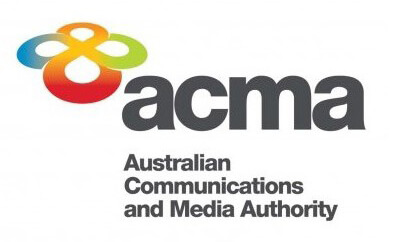
If you’re a regular viewer of the ABC’s Media Watch, you’ve probably heard many references to the ACMA over the years – and that’s not at all surprising since the public role that Media Watch plays fits in with the much less visible roles handled by the ACMA.
And yes, that’s The ACMA, as the authority’s website repeatedly points out. The ACMA is the Australian Communications and Media Authority, a government-run independent body formed in 2005 by merging the Australian Broadcasting Authority and the Australian Communications Authority.
Despite popping up in the media every so often in relation to broadcast TV and radio, the role the ACMA plays is actually far broader, covering pretty much all aspects of modern communication – telecommunications (including phone services), radio and TV broadcasting, two-way radio communications and, of course, the Internet.
The ACMA developed and maintains the various codes of practice and industry standards that apply to all of these realms – and as you might guess from their areas of overview, they have a massive influence on everything to do with media and communications within Australia.
Television and Radio
All the commercial and government TV and radio broadcasters are directly regulated by the ACMA, which not only issues them with their broadcasting licences in the first place but also holds the broadcasters to Codes of Practice — which say what can and can’t be broadcast. There are also broadcasting standards set by the ACMA which cover everything from the amount of Australian content seen on TV and the amount of advertising broadcast during shows, to the disclosure of commercial arrangements held by radio presenters (you’ll possibly recall the controversies surrounding “cash for comment” with some outspoken broadcasters). If a TV or radio broadcaster breaches either the Codes of Practice or the broadcasting standards, you can submit a complaint about it which must be investigated. That doesn’t guarantee that hefty punishment will be handed out, though – the ACMA is generally pretty lenient with broadcasters and the result of many complaints will likely be the broadcaster in question getting a good official scolding. But since adhering to these rules is a condition of holding a broadcasting licence in the first place, you can be sure the broadcasters take the ACMA very seriously.
Phones
One of the most visible and important jobs the ACMA does is in the area of landline and mobile phone services – though it’s nothing to do with the regulation and licensing of mobile phone networks (which of course they also do). The ACMA runs what is probably one of the most useful services of the modern communications era – the Do Not Call Register. This service lets you submit your phone numbers – both home phone and mobile if you like – to a master list of numbers that do not want to receive telemarketing calls. And it’s incredibly effective (if a little watered-down by the fact that religions, charities and political parties are exempt from having to use the list).
Internet
The ACMA is very visibly involved in the online world as well, most notably as the enforcers of the Spam Act, a comprehensive law which bans unsolicited spam email (from inside Australia only, unfortunately), as well as requiring any consensual commercial messages to provide accurate contact information and a one-click way to unsubscribe from any future emails. There are exemptions to the rules – most of them sensible, such as allowing an unsolicited email from a company notifying you that one of their products has been recalled. And just as with the Do Not Call Register, all registered charities, registered political parties and educational institutions are exempt to some extent.
Making a Complaint to the ACMA
The ACMA exists to serve the public as well as the industry and government, and if you’ve got a genuine complaint to make about TV or radio broadcasts, telcos or Internet providers, they’re ready to listen. But you’ll want to make sure first that your complaint is best handled by the ACMA. For example, while you can make complaints about spam email directly to the ACMA, complaints about your NBN service should be sent to your internet provider first, and then the TIO.
If you think a TV or radio broadcaster has broken the rules – whether it be broadcasting inappropriate material, showing too much foreign-produced advertising, showing too many ads during children’s viewing times or not disclosing commercial agreements – you can submit a complaint directly to the ACMA. In many cases, though, they prefer you to complain directly to the TV or radio station involved – and that’s why all the networks have complaint systems set up and active.
If you’re getting telemarketing calls even though you’re on the Do Not Call Register, you can also complain directly to the ACMA. In fact, you can even submit a complaint about interference to your TV or radio broadcasts, if you’re reasonably sure that an outside source is causing it.
The ACMA’s extensive website clearly lays out all the things they handle complaints directly about, and those that they don’t (and gives you points of contact for the latter). So, before rushing to pick up the phone to get the ACMA on the case, take the time to have a look through their website’s complaints section to make sure that it’s something they can help with.
Is the ACMA Effective?
Given the gargantuan task of overseeing and regulating pretty much all forms of communication, the ACMA certainly plays a vital role in the way all of the communications industries operate. But it’s important to remember that they’re not a complaints-handling organisation first and foremost. While they’ll gladly deal with complaints about breaches of their regulations (for example, a business was fined over $10,000 as recently as last January for telemarketing to people on the Do Not Call Register), there are other points of contact that are more suitable for consumer complaints – TV and radio broadcasters themselves, Internet providers and of course the TIO.
But do take the time to browse the ACMA’s website and get familiar with what they do. Then, when you think you’ve found someone breaking the rules, you’ll know where to go to make sure your voice gets heard.





























